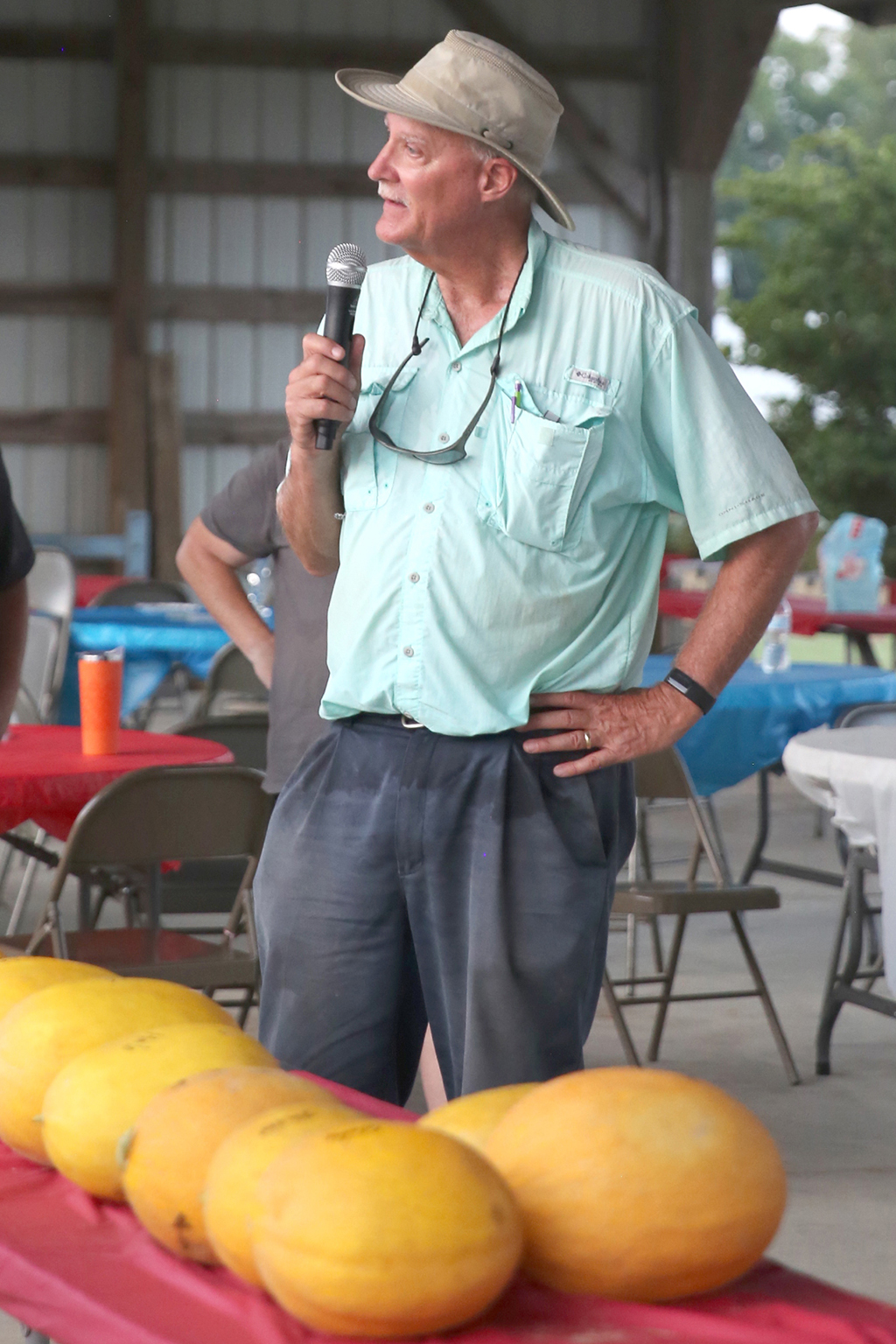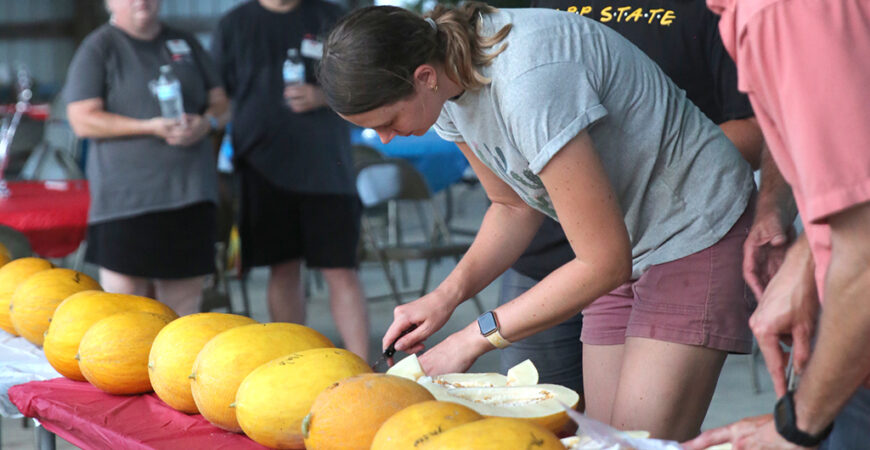CLINTON — Located on Faison Highway, only a stone’s throw from the town of Faison, the Horticultural Crops Research Station in Clinton serves as a platform for agricultural research to bring new crop opportunities and provide farmers with proven methods of growing such crops for greater yields and desirable qualities.
Approximately 20 area farmers and growers participated in a recent field crop tour where they learned about new crop opportunities and some of the work staff, faculty and graduate students have been doing.
Jonathan Schultheis, a professor with NC State University Horticultural Science Department working with the North Carolina Cooperative Extension Service, told Duplin Journal that they are looking at different cucurbits.

“In the cucurbit family, we have some new types of melons, like dino melons, canary melons, which probably most people don’t know what they are, and then we have a whole selection of watermelons. … We cut about a third of them with some people that were really interested in the watermelons earlier,” said Schultheis, explaining one of the goals was to see what kind of varieties or cultivars might work for their commercial operation.
“We do these sorts of cultivar tests annually. We interact with seed companies because they want to hear back what’s of interest to them, and get some feedback,” he explained.
The canary melons are part of the New and Emerging Crops Program, said Schultheis, explaining that they received a grant to look at that as an alternative type of crop.
“Most people don’t know what a canary melon is. We feel like we have some unique flavors and textures,” said Schultheis, adding that they believe the crop would do well here.
“We’re just trying to improve on some of the characteristics and things that we see with watermelons. And so, there’s some new varieties that are coming along there as well. And so, we are really excited about all that,” said Schultheis.
The melon varieties presented during the Watermelon Variety Trial Showcase came from seeds from international companies.
“We have close to 10 companies that may be represented here. All those are basically international seed companies that breed for these different crops across the world.”
“We love working with North Carolina growers and the industry, and we want to try to help them as best as we can,” said Schultheis.
He explained that the idea is if they can grow them well here, they would work with commercial growers and give them a couple of varieties that not only yield well but that taste great.
“Brazil is a big producer of canary melons, and it’s very limited here in the United States. Part of it is an educational process,” said Schultheis. “I think as you expose people more and more to that, and if you give them a good quality product, (the crop production) has a chance to really increase and more growers may grow (canary melons) to make those available to you as a consumer.”
Schultheis told Duplin Journal he would like to see canary melons at the stores and believes people will really enjoy them.
“We’re also working with Dr. Suzanne Johanningsmeier — she’s with USDA and one of the things she does is work with sensory analysis. We’re working with her and using her expertise,” he added, explaining they are hoping to do a sensory taste test next year. They are also planning on doing a taste test with a group of trained panelists.
“We sort of got into this because we had a fellow who was tasting every one of these different types last year,” said Schultheis, who said these varieties have some unique flavors described from succulent and juicy to caramel-like.
“We’re going to select four to six canary melons out of the 20 we’ve tested. And that’ll take some of the risk away from our commercial growers, and we’ll get them some plants,” said Schultheis, adding that they are seeing interest from some of the larger melon growers who are looking to expand their markets.
 Twitter
Twitter Facebook
Facebook Instagram
Instagram






